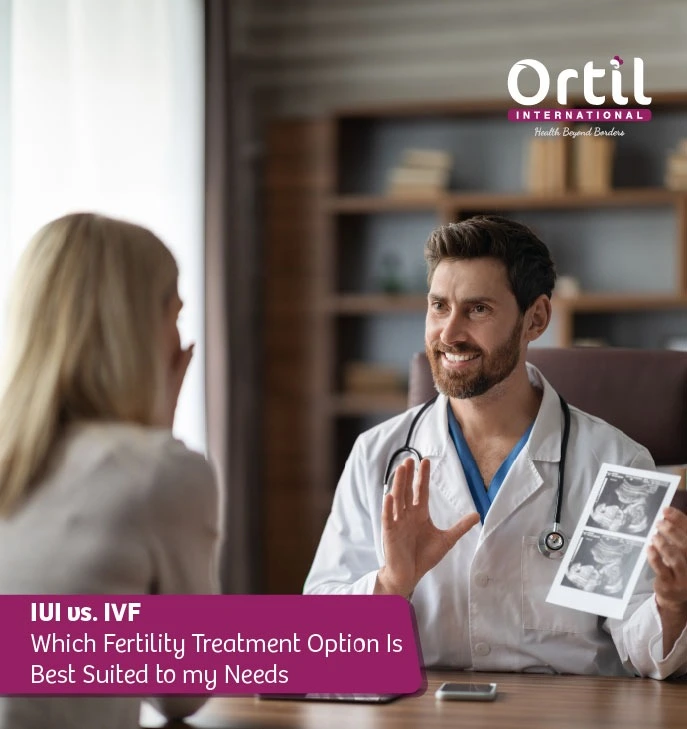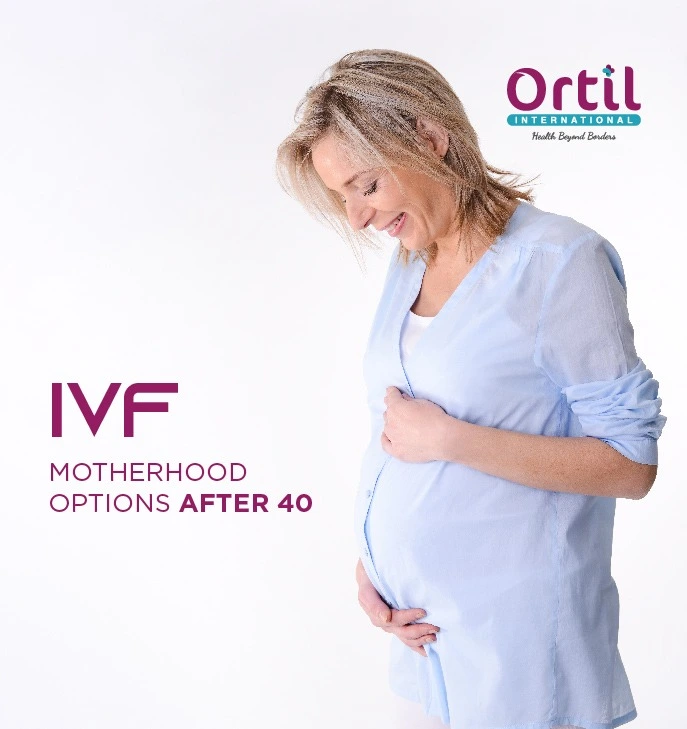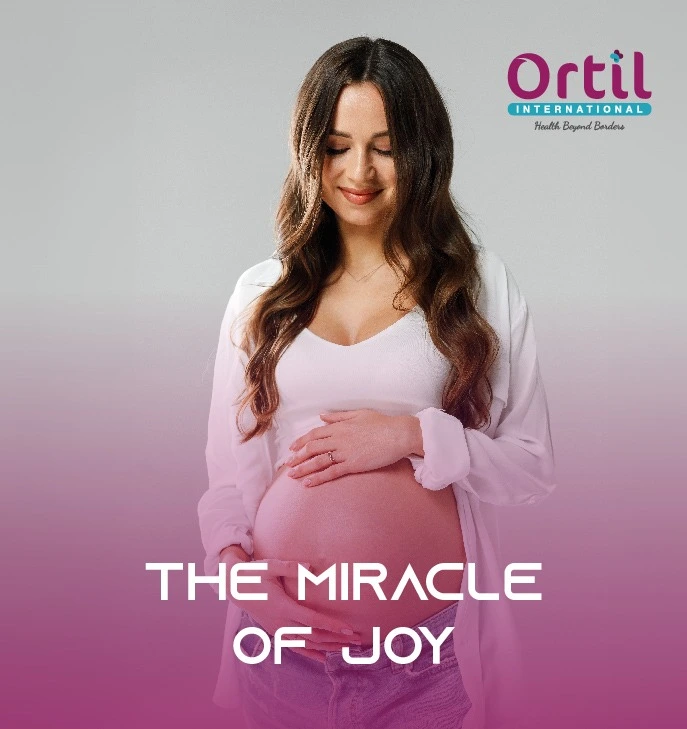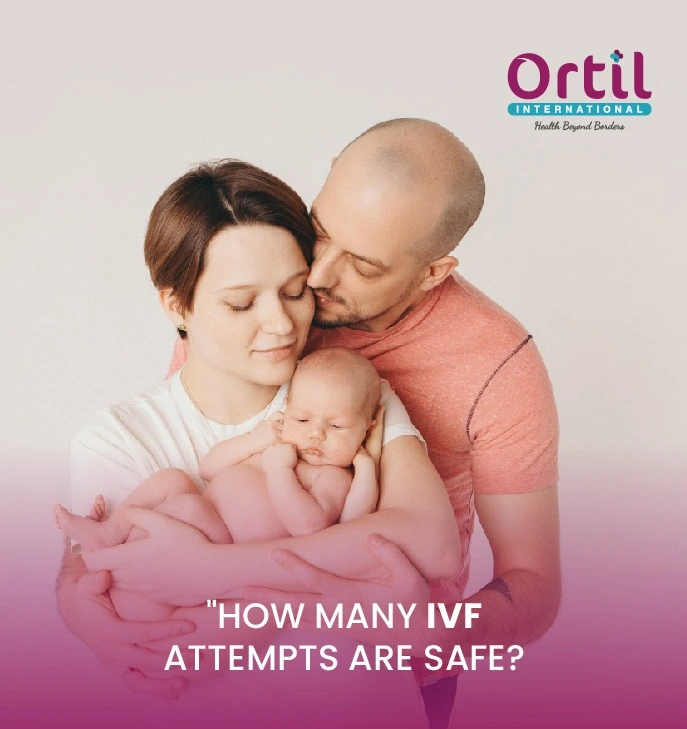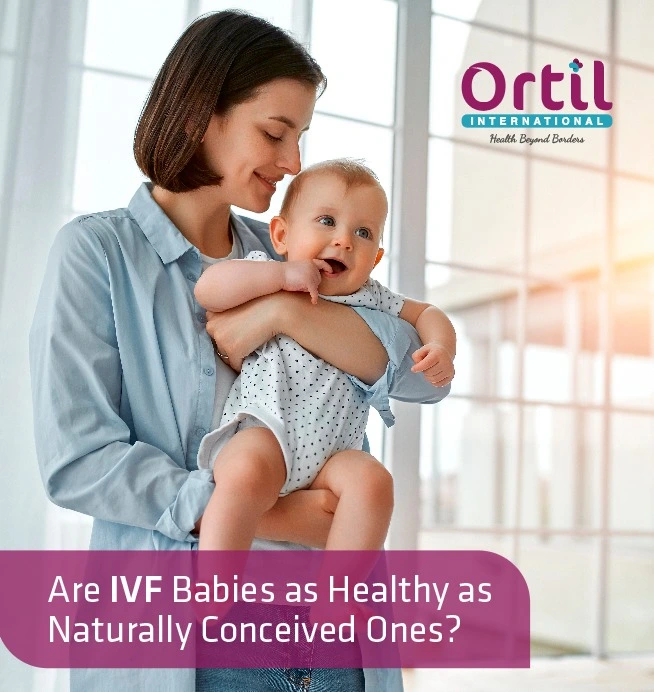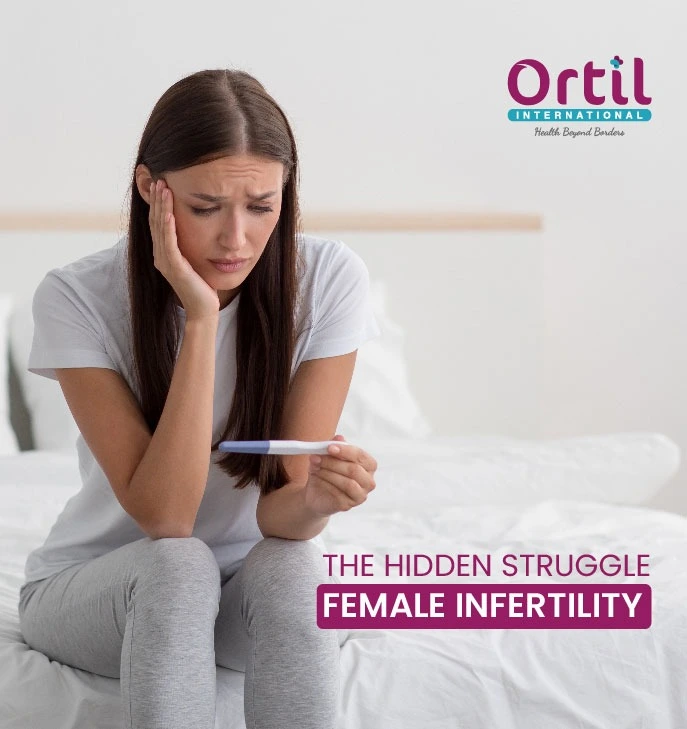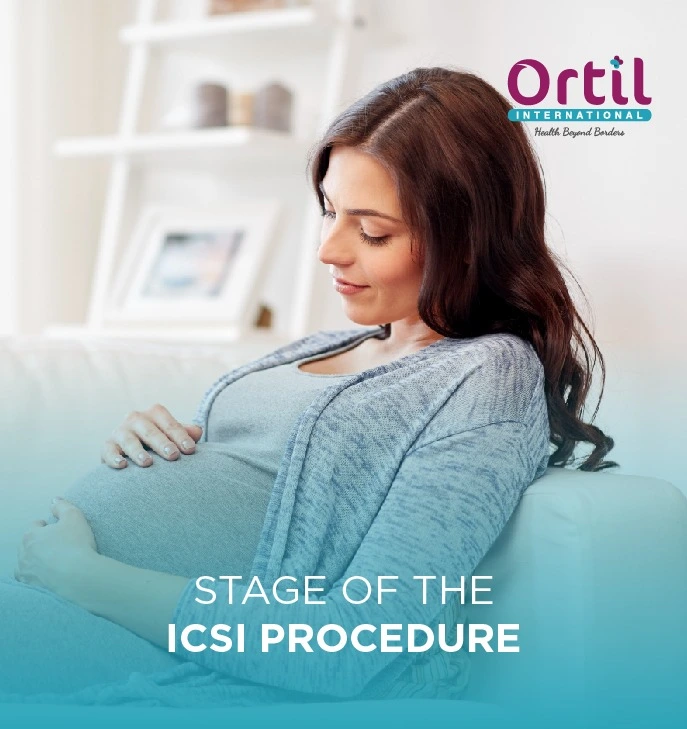IVF or IUI Which One is Best for You?
IVF (In Vitro Fertilization) and IUI (Intrauterine Insemination) are fertility treatments that are used by various couples struggling to conceive a baby naturally. IVF and IUI procedures are different and are used according to your specific needs or unique cause of infertility. Let’s compare the procedures of IVF and IUI so that you can choose which one is best for you.
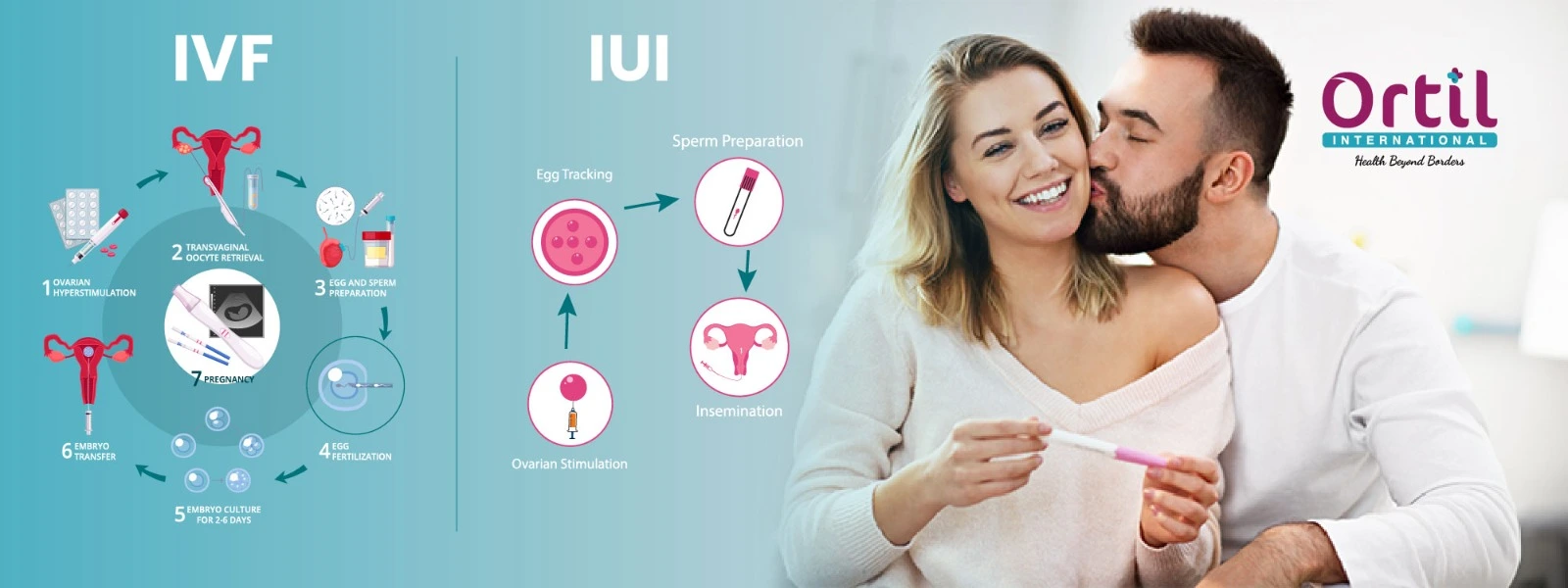
What is IVF & IUI ?
IVF or IUI are two different procedures used for different causes of infertility and patients’ needs. Let’s talk about what is IUI vs IVF.
In Vitro Fertilization (IVF)
IVF is a type of fertility treatment in which medications are given to stimulate the egg production process. The eggs are then obtained from the ovaries and fertilized with sperm cells in laboratory settings outside the body. The embryo formed in the process is then cultured in the laboratory for a few days and then implanted in a uterus to achieve pregnancy.
Intrauterine Insemination (IUI)
Intrauterine insemination is another method used for infertility. In this treatment, the sperm is obtained from the male and then placed inside the uterus of the woman at the right time to maximize the chances of pregnancy. The sperm used in the method is studied in the laboratory for its high efficiency and quality.
Both of these treatments are used in fertility treatments. If you are struggling to have a baby through a natural process, then your fertility specialist might suggest these treatments for better results.
What is the Difference between IVF and IUI ?
Each patient has a unique cause of infertility, and that is why each type of patient gets individualized treatment. For many patients, it can take so much more time, medications, and additional procedures to get the positive outcomes of fertility treatments. IVF and IUI are the treatments used for many patients, but not every patient has the same chances of success of both of these treatments.
The difference between IUI and IVF is obvious because IVF is a complex procedure and involves many steps like:
- Medications for stimulation of egg production
- Retrieval of eggs
- Selection of a high-quality egg
- Fertilization of egg with quality sperm
- Implantation of the embryo in the uterus
While IUI only involves the transfer of high-quality sperm into the uterus of a woman during her ovulation period. It is a simple procedure that does not involve complex processes like IVF.
What do IUI and IVF Have in Common ?
Although IVF and IUI procedures are used in different situations and for different causes of infertility, still, these procedures have many common factors. These common factors are mentioned below:
- Both IVF and IUI involve the use of medications to produce high-quality eggs and sperm that can be used in the treatment.
- High-quality sperms and high-quality eggs are retrieved in both procedures to increase the chances of success.
- In both procedures, the egg must be fertilized in a suitable environment and then implanted into the uterus in order to achieve pregnancy.
These similarities can help you choose the best option for you. Not every patient has the same success rates, but it is helpful to decide with the guidance of your fertility specialist.
Pros and Cons of IVF & IUI
The pros and cons of IVF are described below:
The Pros
- IVF treatment has high success rates.
- IVF has a unique process that can be suitable for many complicated cases or those struggling with infertility for a long period of time.
- IVF can also be used with additional procedures to maximize the chances of success.
- It offers success rates of 55 to 70%.
- It allows the selection of high-quality eggs and sperm.
The Cons
- It may require 3 to 4 cycles to achieve the pregnancy.
- Medications used in the procedure can have side effects.
- Women who are more than 40 years old have a lower chance of success.
- Not all patients can afford this treatment.
The pros and cons of IUI are described below:
The Pros
- It is a simple procedure and much less complicated than IVF.
- It requires less amount of medications
- Little to no discomfort or pain occurs during the process.
- It is less expensive than IVF procedures.
The Cons
- The chances of success can be very low in IUI treatment as compared to IVF.
- It offers success rates of 20% only.
- There is a high chance of multiple births.
- The eggs produced are not in control.
Which One is More Successful ?
While IVF has very high success rates, the effectiveness of both treatments depends on various factors such as age, specific infertility issues, and overall health conditions. Consulting a fertility specialist is an important aspect of assessing the chances of conception through either method.
For certain couples, IUI may offer better results, whereas IVF could be more suitable for others. Regardless of the chosen method, both procedures prioritize using top-quality sperm to optimize the chances of successful fertilization.
How to Decide between IVF and IUI ?
The most effective approach to deciding between IUI and IVF is looking for guidance from a fertility specialist. While you may have an understanding of your preferences, doctors can offer expert advice according to your age, health status, and the underlying cause of infertility. IUI vs IVF success rates are different for each patient.
Generally, younger couples tend to experience higher success rates with IUI, which makes it a preferable option for them. However, if multiple rounds of IUI are required without success, the costs can vary significantly. Hence, it is crucial to carefully consider the financial implications, benefits, and possible risks before finalizing your decision.
What are the Risks of IUI or IVF Processes ?
Generally, IVF and IUI are safe procedures, but sometimes, patients experience some complications. Some of the risks and complications of each procedure are described below:
Risks of IUI
- Multiple pregnancy
- Ovarian Hyper Stimulation Syndrome (OHSS)
- Infection
- Ectopic pregnancy
- Ovarian cyst formation
- Discomfort or pain during the procedure
- Bleeding or spotting
- Emotional stress
Risks of IVF
- Ovarian Hyper Stimulation Syndrome (OHSS)
- Egg retrieval risks (bleeding, infection, organ damage)
- Multiple pregnancy
- Ectopic pregnancy
- Miscarriage
- Birth defects in offspring
- Emotional stress
- Financial strain
Conclusion
Each procedure of fertility treatment has unique benefits and risks, and each treatment is selected after weighing the pros and cons for each patient. Your doctor suggests the possible treatment options according to your needs and the cause of infertility, and then you may choose the best option for you.
FAQ’s of Difference between IVF and IUI
Which is more Successful, IVF or IUI ?
IVF generally has high success rates as compared to IUI, but the chances of success can vary for each patient.
Is it Better to Start with IUI or IVF ?
Doctors usually start with IUI, and if treatment does not show any response, then they recommend going for IVF.
Can I have a Healthy Baby with IUI ?
IUI is a safe procedure, and you can have a healthy baby by using this treatment under the guidance of a skilled fertility specialist.
How Many Rounds of IUI are Safe ?
The number of rounds of intrauterine insemination (IUI) that are considered safe can vary according to individual circumstances, like the cause of infertility, the woman's age, and overall health.
Why do People Choose IUI over IVF ?
People choose IUI over IVF because of its low cost, less invasive nature, and use of fewer medications as compared to IVF.










